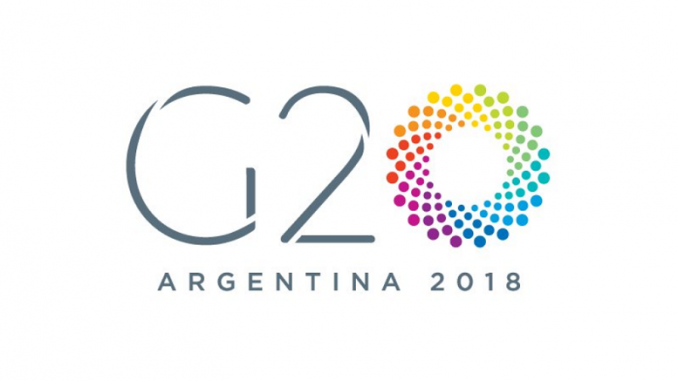G20 calls for the settlement of cryptocurrency by July 2018

World leaders of the economy held a G20 summit in Buenos Aires, Argentina. Main topic of the discussion was proposals to regulate cryptocurrency to be introduced by July 2018 in accordance with the G20 communique. The document confirms the words of Federico Sturzenegger, the Chairman of the Central Bank of Argentina, regarding the issue that cryptocurrencies should be studied and examined.
Having studied the document, it can be noted that world leaders regard cryptocurrency as a digital asset rather than as a currency, so they agree that cryptocurrency will not be a universal means if payment, however, the G20 communique recognizes the "technological innovations" underlying cryptocurrencies that can "increase the effectiveness and inclusiveness of the financial system and the economyas a whole".
Protection of consumers and investors, as well as tax evasion, money laundering and terrorist financing through crypto-currencies were discussed at the summit, and the foregoing has recently been main topic of discussion among regulators around the world.
The G20 communique notes that crypto-assets lack the standard functions that are inherent in full-fledged currencies. In terms of value, cryptocurrency is an unreliable asset with a potential to affect financial stability in the future. G20 undertakes to implement and apply the FATF (Financial Action Task Force) standards for crypto-assets, pending the review of these standards, and encourages the organization to scale them. G20 also calls on the standards-setting bodies (SSBs) to continue monitoring crypto-assets and risks, taking into account international standards, in order to avoid any illegal activities using cryptocurrency.
However, not all countries support this approach. According to the local news agency El Cronista, Ilan Goldfajn, the president of the Central Bank of Brazil, noted that his country would not deal with the regulation of cryptocurrency.
At the end of the communique, it is stated that the regulatory rules should be introduced by July 2018.
We ask the FSB in cooperation with other SSBs, including the CPMI and the IOSCO, as well as the FATF, to report the results of their work on the analysis of cryptoassets in July 2018.
The conclusions reached by the world's economic leaders were complemented by Mark Carney, the head of the FSB and the Governor of the Bank of England, who sent a letter to the G20 finance ministers, stating in it that cryptocurrencies do not carry the risk for global financial stability to date.





























































